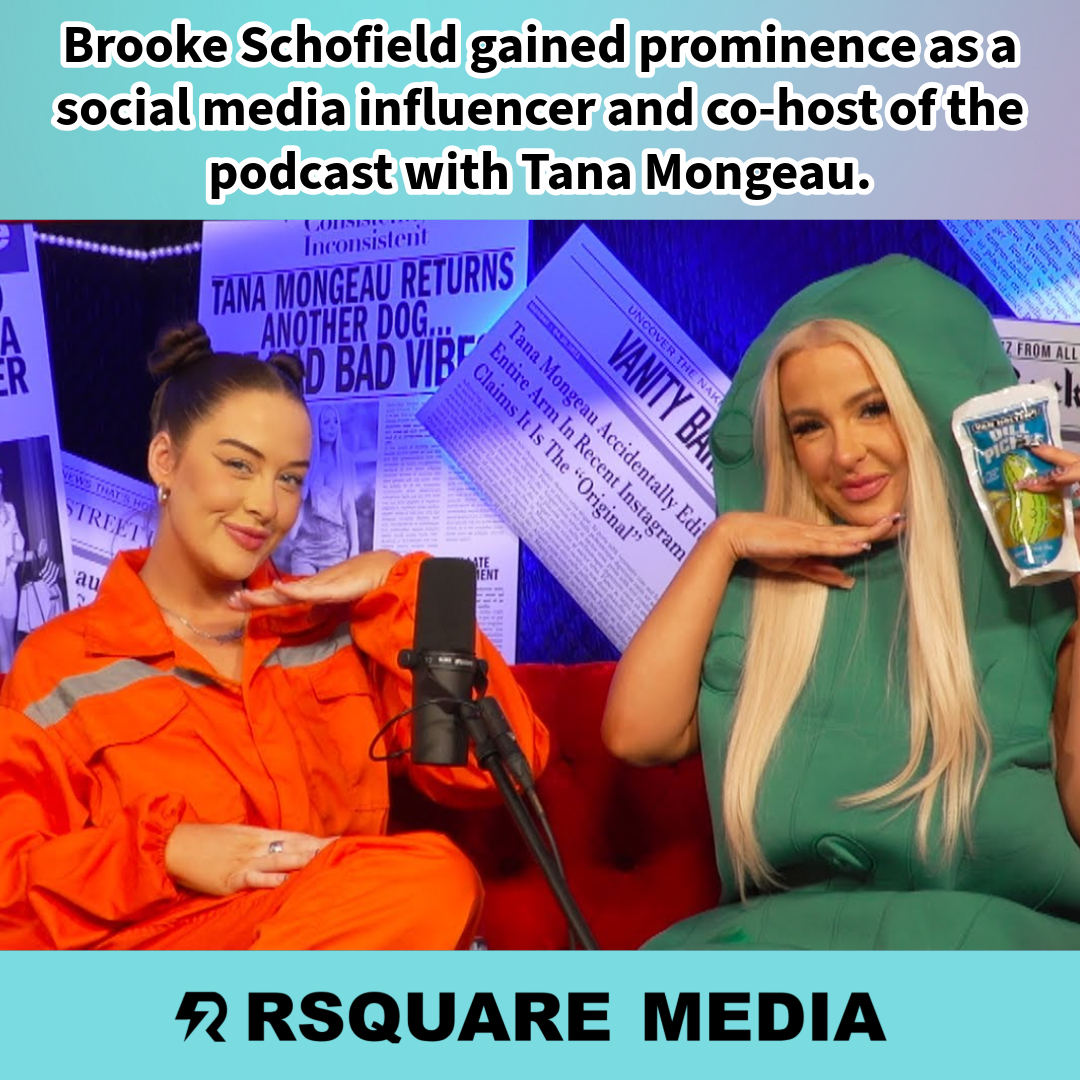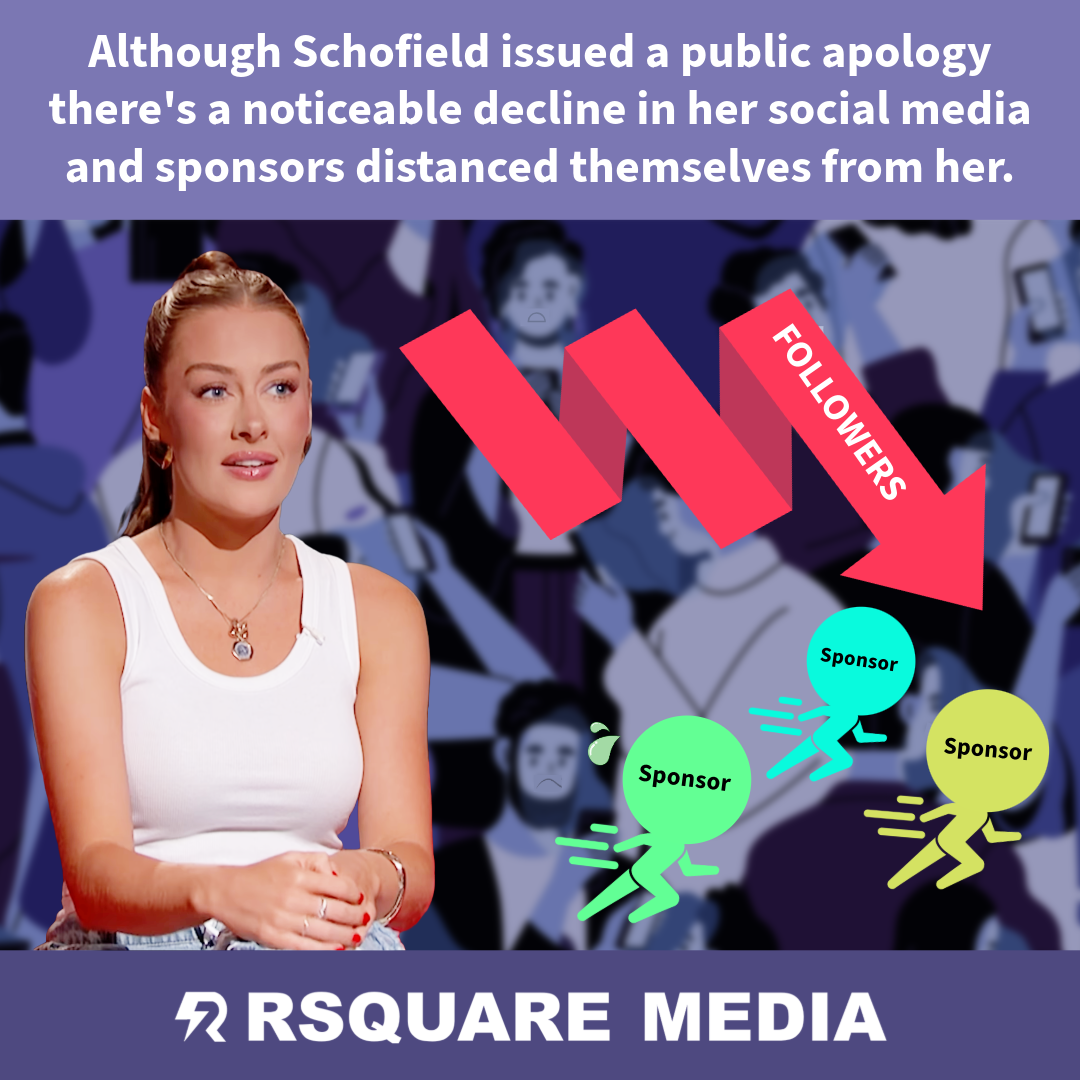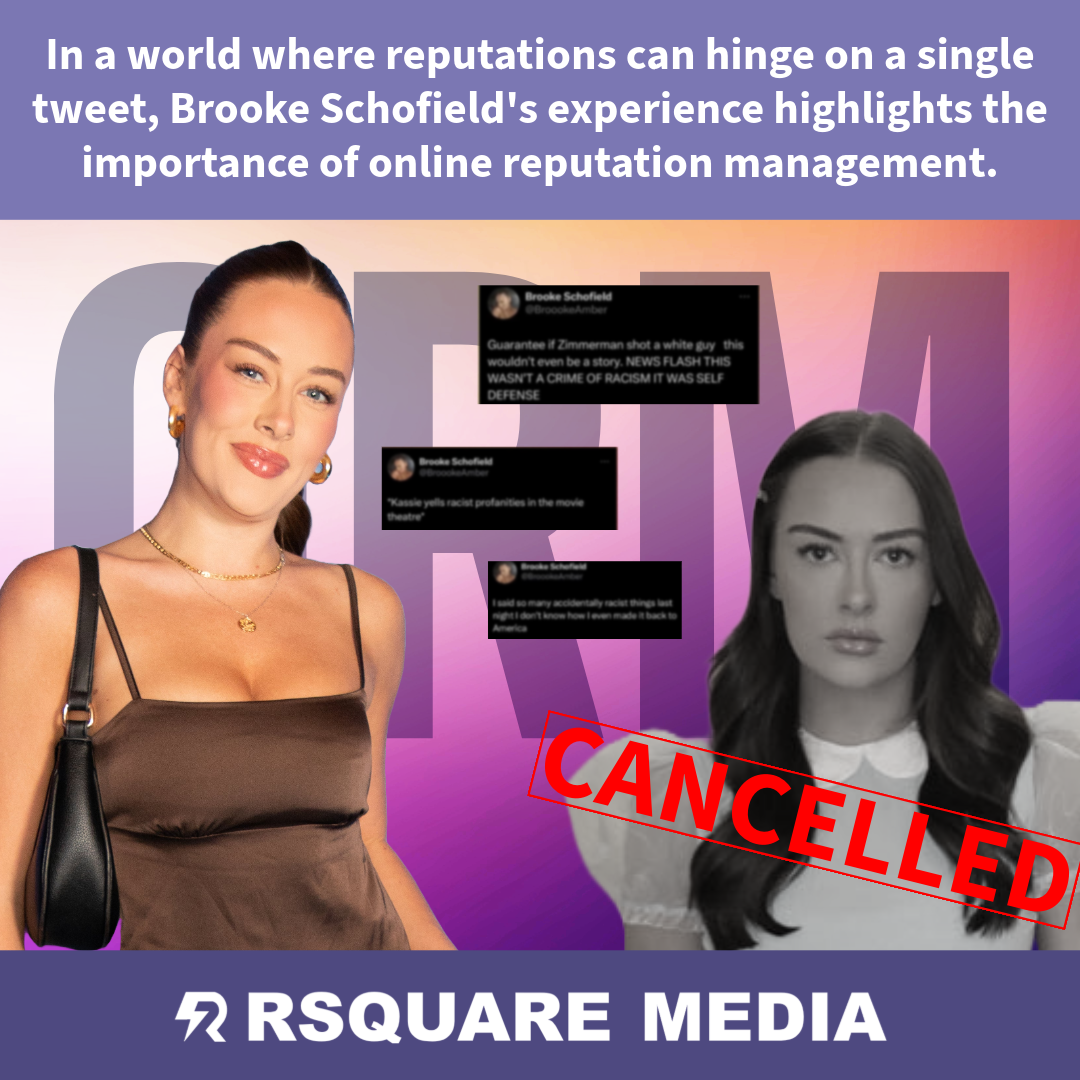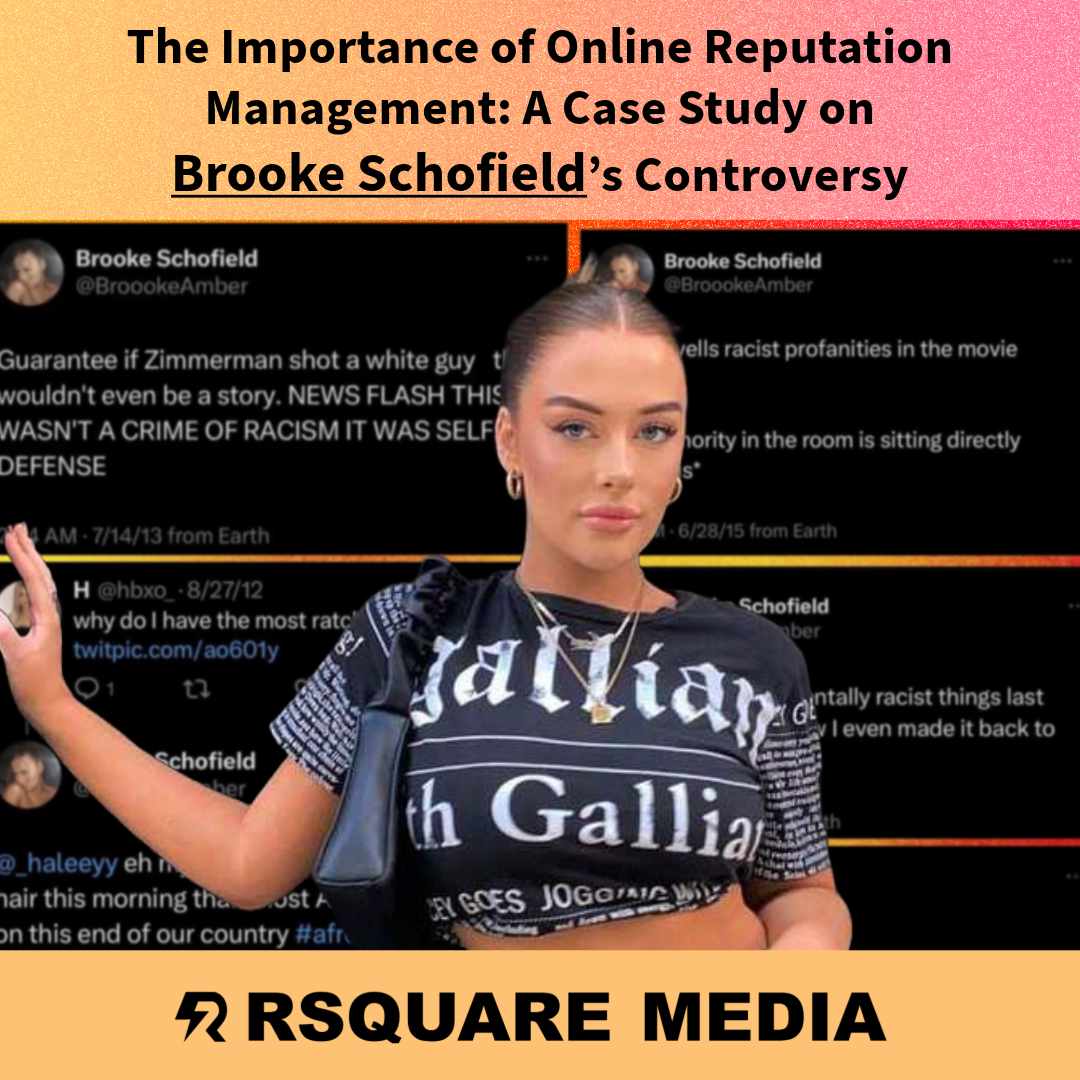Introduction
In the age of social media, where every action and word can be magnified and scrutinized, managing one’s online reputation is more crucial than ever. The recent controversy surrounding Brooke Schofield, a social media personality known for her association with Tana Mongeau’s podcast, serves as a stark reminder of the importance of online reputation management strategies. Schofield’s use of derogatory language, including the N-word, and other offensive remarks has led to her removal from the podcast and a significant backlash online.
This incident raises critical questions about the consequences of harmful behavior online and underscores the need for robust online reputation management strategies. For influencers, public figures, and businesses alike, understanding why online reputation management is important can be the difference between maintaining a successful career or brand and facing a potentially irreversible downfall.
In this comprehensive analysis, we will delve into the events that led to Brooke Schofield’s controversy, explore the broader implications of her actions, and examine the importance of online reputation management in mitigating such crises. This article will provide valuable insights into how public figures can navigate the challenges of online behavior, the role of social media in shaping reputations, and the strategies necessary to safeguard one’s online presence.
I. The Rise and Fall of Brooke Schofield: A Timeline of Events
1. Brooke Schofield’s Journey to Fame
Brooke Schofield gained prominence as a social media influencer and co-host of the podcast with Tana Mongeau, a well-known YouTuber and internet personality. Schofield’s relatable content, often centered around her lifestyle, relationships, and experiences in the entertainment industry, garnered her a significant following. Her association with Tana Mongeau further elevated her profile, making her a familiar name among fans of online entertainment.

Before the controversy, Schofield was seen as a rising star in the world of social media, known for her candid and often humorous takes on life. Her partnership with Tana Mongeau provided her with a platform to reach a broader audience, and she quickly became an influential voice in the online community. However, this visibility also meant that any missteps would be highly publicized and subject to intense scrutiny.
2. The Controversy Unfolds: Offensive Language and Backlash
The turning point in Brooke Schofield’s career came when past recordings of her using derogatory language, including the N-word, surfaced online. These recordings, coupled with other instances of offensive remarks, sparked outrage among her followers and the wider internet community. The backlash was swift and severe, with many calling for her to be held accountable for her actions.
Schofield’s use of such language was particularly damaging, given the current social climate and the growing awareness around issues of racism and discrimination. Her words were seen as not only inappropriate but also deeply hurtful to many individuals and communities. As the controversy gained traction, Schofield faced mounting criticism, and her association with Tana Mongeau’s podcast was put into question.

3. Removal from the Podcast and Public Apology
In response to the growing outrage, Brooke Schofield was removed from Tana Mongeau’s podcast. This decision was seen as a necessary step to distance the podcast from Schofield’s controversial behavior. Tana Mongeau herself addressed the issue, expressing disappointment and emphasizing the importance of accountability and learning from one’s mistakes.
Following her removal, Schofield issued a public apology, acknowledging the harm caused by her words and expressing regret for her actions. However, the damage to her reputation had already been done, and the apology was met with mixed reactions. While some appreciated her willingness to apologize, others felt that her words were insufficient and that more concrete actions were needed to atone for her behavior.
4. The Fallout: Loss of Followers and Sponsorships
The controversy had significant repercussions for Brooke Schofield’s career. She experienced a noticeable decline in her social media following as fans unfollowed her in protest. Additionally, several brands and sponsors distanced themselves from her, further impacting her income and opportunities within the industry.
This fallout highlights the fragility of an online reputation, especially for influencers who rely on their public image to maintain their career. The swift response from fans and sponsors alike demonstrated the power of public opinion in the digital age and the potential consequences of failing to manage one’s online presence responsibly.

II. The Importance of Online Reputation Management: Lessons from the Brooke Schofield Incident
1. The Role of Social Media in Shaping Public Perception
Social media has become the primary platform for shaping public perception in today’s world. For influencers like Brooke Schofield, social media is not just a tool for communication but also a critical component of their brand and livelihood. The way an individual or brand is perceived online can have far-reaching implications, affecting everything from career opportunities to personal relationships.
The Brooke Schofield controversy underscores the importance of understanding how social media can both build and destroy reputations. One of the key lessons from this incident is the need for public figures to be mindful of their online behavior, recognizing that every post, comment, and interaction can contribute to their overall image.
In Schofield’s case, her past use of offensive language resurfaced at a time when social justice movements were at the forefront of public discourse. This context amplified the backlash and made it even more challenging for her to recover. It serves as a reminder that the internet has a long memory, and actions from years ago can still come back to impact one’s reputation today.
2. The Importance of Accountability and Transparency
One of the critical components of effective online reputation management is accountability. When a public figure like Brooke Schofield faces a controversy, how they respond can significantly influence the outcome. In Schofield’s case, her public apology was a step in the right direction, but it also highlighted the importance of transparency and taking responsibility for one’s actions.
Accountability involves more than just issuing an apology; it requires genuine efforts to make amends and demonstrate a commitment to change. For Schofield, this could have included engaging in educational initiatives around the issues she was criticized for, or supporting causes that promote racial equality and social justice. By taking these actions, she could have shown her audience that she was committed to learning and growing from her mistakes.

Transparency is also crucial in online reputation management. Public figures must be open and honest with their audience, especially in times of crisis. Attempting to downplay or hide negative events can often backfire, leading to further damage to one’s reputation. Instead, addressing issues head-on and communicating openly with followers can help rebuild trust and credibility.
3. The Role of Online Reputation Management Services
For public figures and businesses alike, partnering with online reputation management services can be a valuable strategy for navigating controversies like the one faced by Brooke Schofield. These services specialize in monitoring online activity, managing public perception, and mitigating the impact of negative content.
Online reputation management services can help identify potential issues before they escalate, allowing individuals and brands to respond proactively. In Schofield’s case, having such a service in place could have enabled her to address the offensive content as soon as it surfaced, potentially minimizing the backlash.
Additionally, these services can assist in crafting effective responses, optimizing search engine results to highlight positive content, and engaging with the community in a meaningful way. For influencers and businesses who rely heavily on their online presence, investing in online reputation management is not just a reactive measure but a proactive strategy for long-term success.
III. Broader Implications: How Online Reputation Impacts Careers and Brands
1. The Long-Term Consequences of Negative Online Behavior
The fallout from the Brooke Schofield controversy serves as a stark reminder of the long-term consequences that negative online behavior can have on one’s career and brand. In the digital age, where information spreads rapidly and widely, even a single misstep can have lasting effects.
For Schofield, the controversy not only led to an immediate loss of followers and sponsorships but also damaged her credibility and trustworthiness. Rebuilding a tarnished reputation is a challenging and often lengthy process, requiring consistent efforts to regain the public’s trust.
This incident also illustrates how the actions of individuals can impact the brands and companies they are associated with. Tana Mongeau’s podcast, for example, had to distance itself from Schofield to protect its own reputation. This highlights the interconnected nature of online reputations, where the behavior of one individual can have ripple effects on others.
2. The Importance of Continuous Reputation Monitoring
One of the key takeaways from the Brooke Schofield controversy is the importance of continuous reputation monitoring. In a world where information is constantly being shared and reshared online, it is essential for public figures and businesses to stay vigilant about how they are being perceived.
Continuous reputation monitoring allows individuals and brands to stay ahead of potential issues, identify negative content early, and take corrective action before it escalates. This proactive approach is crucial in maintaining a positive online presence and avoiding the kind of backlash that Schofield faced.
Moreover, ongoing monitoring helps ensure that positive content remains at the forefront of one’s online presence. By regularly updating and optimizing online profiles, sharing positive news and achievements, and engaging with followers, individuals and brands can build a strong and resilient reputation that can withstand challenges.
To learn more about online reputation management, click here.
3. The Role of Crisis Management in Reputation Recovery
In the aftermath of a controversy like the one faced by Brooke Schofield, crisis management becomes a critical component of reputation recovery. Effective crisis management involves not only addressing the immediate issue but also implementing long-term strategies to rebuild trust and credibility.
For Schofield, crisis management could have included a series of steps to demonstrate her commitment to change, such as collaborating with advocacy groups, participating in public discussions about the issues she was criticized for, and consistently sharing positive and constructive content.
Crisis management also involves clear and consistent communication with the audience. By keeping followers informed about the steps being taken to address the controversy, public figures can show that they are taking the situation seriously and are dedicated to making amends.
Ultimately, crisis management is about turning a negative situation into an opportunity for growth and learning. While the road to recovery may be long and challenging, effective crisis management can help individuals and brands emerge stronger and more resilient.
IV. Conclusion: Why Is Online Reputation Management Important?
The Brooke Schofield controversy is a powerful case study that underscores the critical importance of online reputation management. In today’s digital world, where every action is subject to public scrutiny, managing one’s online presence is essential for maintaining a successful career or brand.
This incident highlights the potential consequences of negative online behavior, the role of social media in shaping public perception, and the importance of accountability and transparency. It also emphasizes the need for continuous reputation monitoring, proactive crisis management, and the value of partnering with online reputation management services.
For influencers, businesses, and public figures alike, understanding why online reputation management is important is key to navigating the challenges of the digital age. By taking a proactive approach to managing their online presence, individuals and brands can build a strong and positive reputation that can withstand the tests of time and controversy.

In a world where reputations can be made or broken with a single tweet, the lessons learned from Brooke Schofield’s experience serve as a reminder that online reputation management is not just important—it is essential.
Your online reputation can make or break your career, as we’ve seen with Brooke Schofield’s recent experience. Don’t leave your online presence to chance. At Rsquare Media, we specialize in comprehensive online reputation management, helping you navigate crises, build a positive brand image, and protect your future. Contact us today for a free consultation and learn how we can safeguard your reputation and help you maintain a strong, positive presence online. Don’t wait—your reputation deserves the best. Reach out now!

